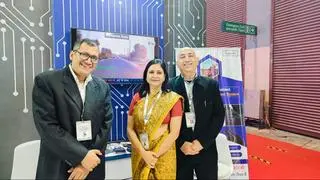Payal Shah, who leads early-stage funding activity at Axilor Ventures, is not too bothered by the fact that over the last few years, a number of venture capital firms have started doing seed stage investing.
“One thing that we are trying to establish among founders and obviously founders have to believe that is the case is, we believe that compared to VCs our interests are far more aligned to the start-up at the seed stage,” she says.
For a VC, a seed stage cheque is a small percentage of its overall portfolio. “Whereas, for me,” says Payal, “it is a sizeable amount and so the outcome of the start-up matters a lot to me.” For the VCs, seed-stage investing is an option value, to create a pipeline for their larger deployment. The other issue, she adds, is the strong signalling risk that a founder runs. If a founder has raised money from a VC and they don’t invest in a follow-on round, that means the founder is pretty much on his or her own; no other large VC will back them. “A VC may come and go depending on whether it is in their interest to be in that business or not, but there will be a stable set of people who will operate at the seed stage and good founders should hopefully be able to come to both,” says Payal.
Mentoring ventures
Axilor’s engagement with the ventures it invests in is quite deep, according to her. It shares the lessons it has learnt from other companies in its portfolio, gives them benchmarks from the portfolio, gives them ideas, helps them connect with corporates and with investors. It has built a programme called Axilor Enterprise Network to help connect its portfolio companies with corporates. “Last quarter, we made more than 80 introductions to our start-ups to corporates. We also track to see how many of them converted to pilots. We are measuring ourselves,” she says.

Axilor has a ₹200-crore fund from which it invests ₹2-3 crore in a start-up in the pre-Series A stage. It will invest ₹6-10 crore in a venture over multiple rounds, depending on the number of rounds and hope to exit its investment in the Series C or D stage. Axilor typically picks up a 10-15 per cent stake in the ventures it invests in.
A commerce graduate from Mount Carmel College in Bengaluru and an MBA from Symbiosis, Pune, Payal worked in McKinsey for a couple of years, before getting into the VC space. She worked in Sequoia Capital and then in impact investment fund Acumen before joining Axilor.
Accelerator programme
Axilor runs an accelerator programme for two batches of 100 days each every year, in which it takes in 20 start-ups per batch. It gives ₹10 lakh upfront to each of the participants in the accelerator programme and helps them in specific areas such as market access, pricing and fund raising. “Funds know that 20 start-ups come in every six months, we have almost 20-30 funds and angel groups that come to meet the start-ups. As a result, 60-70 per cent of the batch gets seed funded as well when they graduate from the programme,” says Payal.
According to her, ventures need not go through Axilor’s accelerator programme to get funding from the firm; they can apply directly. “The idea from the investment philosophy perspective has been to back new-age businesses and new-age technologies,” she explains.








Comments
Comments have to be in English, and in full sentences. They cannot be abusive or personal. Please abide by our community guidelines for posting your comments.
We have migrated to a new commenting platform. If you are already a registered user of TheHindu Businessline and logged in, you may continue to engage with our articles. If you do not have an account please register and login to post comments. Users can access their older comments by logging into their accounts on Vuukle.